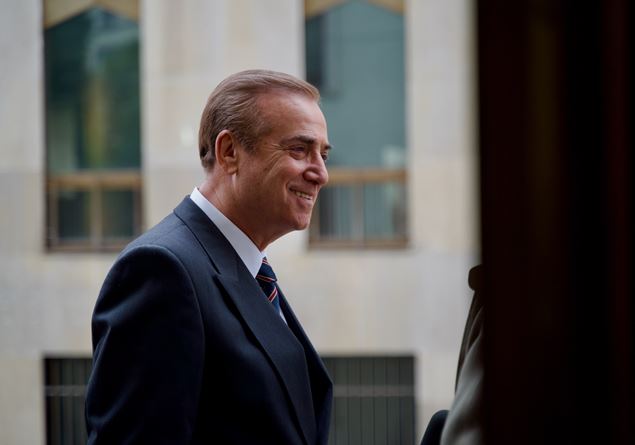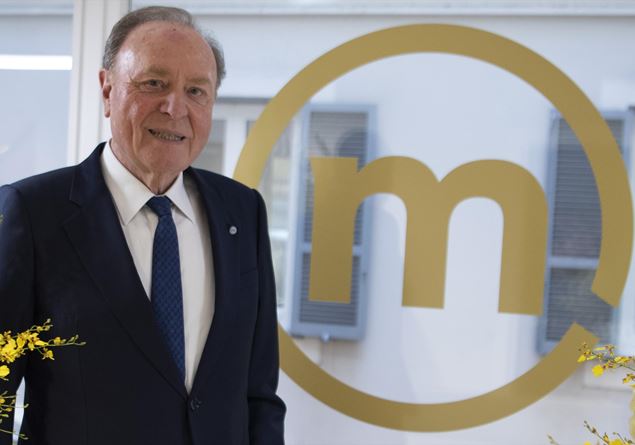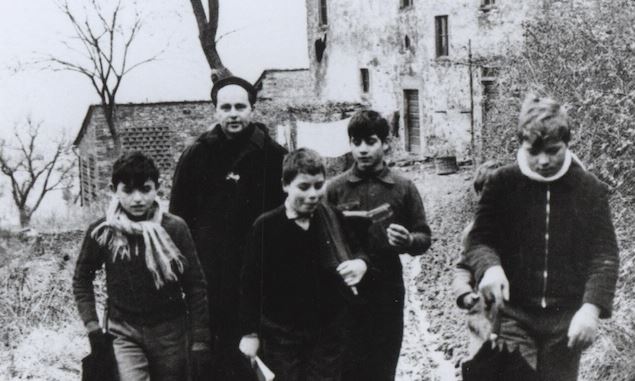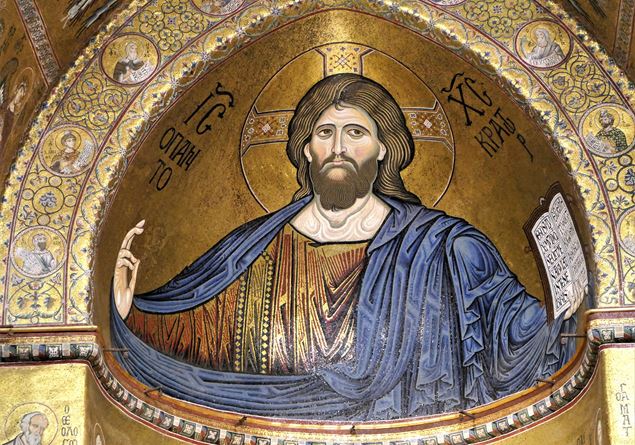
For many, Ennio Doris is the man from the Mediolanum advertisement who draws a circle on the ground with a compass. A certainly rich and powerful personality, who created a bank with the help of Silvio Berlusconi. Ennio Doris, who passed away on November 24, 2021 at the age of 81, ill for some time, he wanted to leave his story as a legacy by writing the autobiographical book There is also tomorrow (Mondadori) with Leopoldo Gasbarro. Hence the idea of Doris’s family to have a film made with the same title that would reconstruct her incredible human and professional story. The film, directed by Giacomo Campiotti, released in theaters last April, is showing now on Canle 5 exactly three years after Doris’s death. The story begins and ends with the speech that Ennio Doris made in the Paleocapa building of Fininvest in Milan in which he announced that to prevent Mediolanum account holders from suffering damage from the collapse of Lehman Brothers, he would compensate the losses with his personal funds for a amount of 100 million euros. The story then proceeds in time jumps, starting from when Ennio Doris was a ten-year-old son of a cow seller and destined to go to work with his father after finishing fifth grade. But, struck by nephritis, the doctor advised against too strenuous occupations, and so Ennio continued his studies. Thanks to his brilliant intelligence, after graduating as an accountant he found a job in a bank and from there began his career in the field of finance. Playing him, as a now mature and established man, is Massimo Ghini: «When they offered me this role I was very surprised. I knew nothing about Ennio Doris’ life and I wondered what was so interesting to tell about him. And it was a surprise to discover his life, his humanity.”
Have you had the opportunity to meet the family?
«We met with his wife Lina Tombolato and their children Sara and Massimo: they are a beautiful family, all three kind and empathetic. You don’t expect it from people of that level and I have met many over the course of my career. The Doris remained simple and respectful of human beings.”
What struck you most about Ennio Doris’ life?
«The humble origins and the social climb are a beautiful story, but common to others; the real gesture that makes me assimilate him to a sort of lay saint is precisely the decision to reimburse the losses of his account holders out of his own pocket, going against the ABI”.
And what is your opinion about your relationship with Berlusconi, which was decisive?
«Ennio Doris had a dream, that of creating a different bank, on the side of savers, but he certainly didn’t have the capital to do it. Berlusconi yes, and the flair for understanding when he was faced with a good idea. They became partners, but Mediolanum has always remained in the Doris family.”
Doris has adopted many of her father’s teachings, who for example told her “don’t put your happiness in the hands of others”. Were your family values important to you too?
«My father joined the Resistance and was sent to Mauthausen, then he became an official of the Communist Party. An example that left a strong impression on me.”
He has played the role of many illustrious men. Who did you feel most in tune with?
«It was exciting to play the young Roncalli, but the man who resonated most with me is Enrico Mattei, who had a project that also served the common good, and in this he reminds me of Ennio Doris. He said: “I’m not interested in being rich in a nation of poor”.
You won a Silver Ribbon for your portrayal of a man suffering from Alzheimer’s in Everyone’s fine at homebut he doesn’t disdain cinepanettoni. Do you like making people laugh or cry more?
«I like to do everything, and perhaps for this reason I am not well regarded by critics. But if De Niro does it…”.









